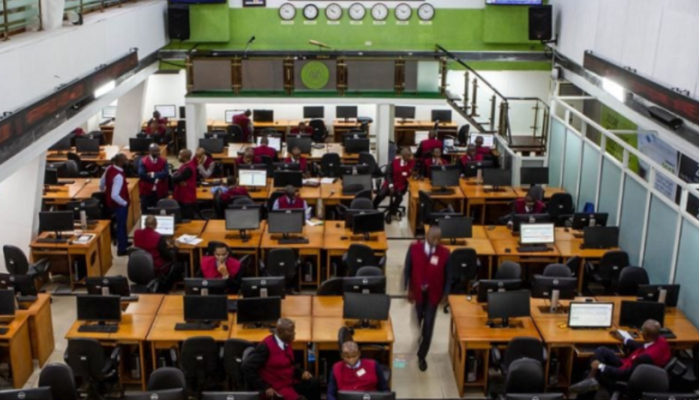The Nigerian Stock Exchange (NGX) staged a recovery yesterday after experiencing a steep sell-off that saw billions of naira wiped off market capitalization earlier in the week. Market analysts attribute the rebound to renewed investor confidence, bargain hunting, and improved sentiment in key sectors, signaling a potential stabilization after days of volatility.
According to reports, the NGX All-Share Index regained lost ground, buoyed by gains in banking, consumer goods, and oil and gas stocks. Market capitalization rose as investors took advantage of lower share prices to increase their holdings, reflecting optimism about medium-term corporate earnings and economic performance. The rebound was led by heavyweights such as Zenith Bank, Dangote Cement, and MTN Nigeria, whose shares attracted significant buying interest.

Investors appeared encouraged by recent macroeconomic developments, including stabilizing foreign exchange rates and positive corporate earnings announcements. Analysts suggest that these factors have mitigated earlier concerns over liquidity pressures and rising inflation, prompting institutional and retail investors to re-enter the market.
The previous sell-off had been triggered by profit-taking in high-performing stocks and concerns over global economic uncertainties, particularly the impact of fluctuations in crude oil prices and foreign investment flows. During the decline, market capitalization lost trillions of naira, reflecting caution among investors amid a turbulent trading environment. However, the current recovery indicates that investors are regaining confidence in the resilience of Nigeria’s equity market.
Trading volumes increased as bargain hunters moved to acquire undervalued stocks, particularly in sectors that have shown strong performance in recent quarters. Banking stocks led the charge, supported by half-year earnings growth and strong balance sheets. Consumer goods companies also saw renewed interest, driven by expectations of increased domestic consumption and stable input costs.
Market analysts emphasized that the rebound is not only a reflection of short-term trading activity but also an indication of confidence in Nigeria’s economic fundamentals. They noted that positive corporate results, improved foreign exchange supply, and supportive fiscal and monetary policies have collectively contributed to the market’s resurgence.
Despite the recovery, analysts caution that volatility may persist in the short term due to external pressures, including global commodity price swings, geopolitical tensions, and investor sentiment shifts. They recommend a balanced approach, urging investors to focus on fundamentally strong stocks and sectors likely to benefit from Nigeria’s economic recovery.
The rebound has had a positive effect on investor portfolios, reversing part of the losses incurred during the sell-off. Many investors took advantage of the rally to reassess their holdings and reposition their portfolios for potential growth in the remaining months of the trading year.
Industry experts argue that the recovery underscores the importance of market depth and liquidity in absorbing shocks and maintaining investor confidence. The NGX’s ability to recover quickly from sharp declines demonstrates the market’s resilience and the underlying strength of Nigeria’s listed companies.
In addition to domestic factors, foreign investor activity contributed to the market turnaround. Increased foreign portfolio inflows, particularly into high-performing equities, provided support to the market and signaled continued interest in Nigeria’s investment landscape. Analysts note that foreign participation is critical for sustaining liquidity and broadening the investor base, enhancing overall market stability.
Looking ahead, market observers expect cautious optimism to continue, with potential gains influenced by corporate earnings releases, government economic policies, and global market trends. Analysts suggest that sectors such as banking, telecommunications, and consumer goods are likely to lead further gains, supported by strong fundamentals and sustained demand.
The NGX rebound also reflects broader investor confidence in the Nigerian economy, highlighting expectations of recovery in key sectors such as oil and gas, manufacturing, and services. Improved macroeconomic indicators, including foreign exchange inflows and stabilizing inflation, are expected to reinforce market sentiment and support equity investment.
In conclusion, the Nigerian Stock Exchange’s recovery after a steep sell-off demonstrates the resilience and adaptive nature of the market. Supported by positive corporate earnings, renewed investor confidence, and macroeconomic stability, the rebound underscores the potential for sustained growth and highlights opportunities for both domestic and foreign investors. While caution remains warranted given global uncertainties, the market’s performance indicates a renewed sense of optimism among stakeholders in Nigeria’s capital market.
Support InfoStride News' Credible Journalism: Only credible journalism can guarantee a fair, accountable and transparent society, including democracy and government. It involves a lot of efforts and money. We need your support. Click here to Donate
